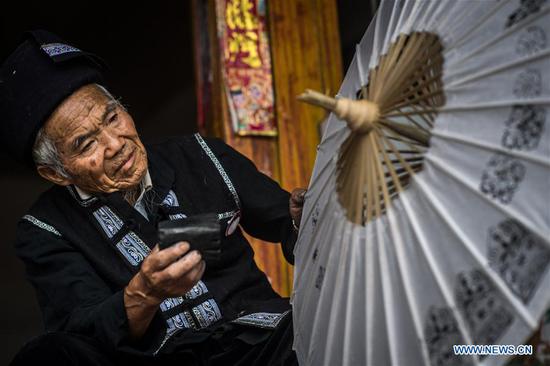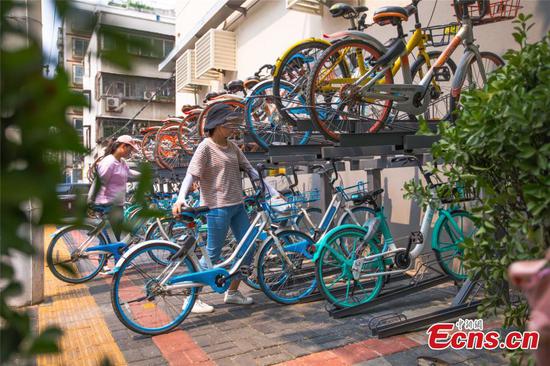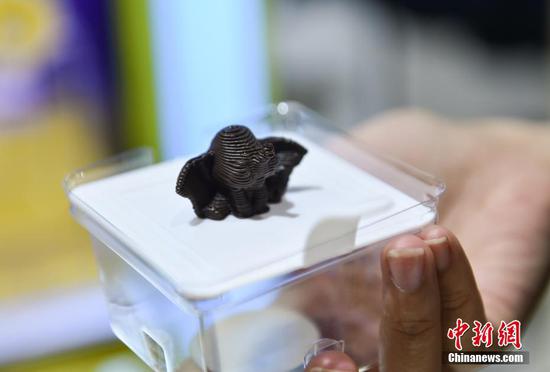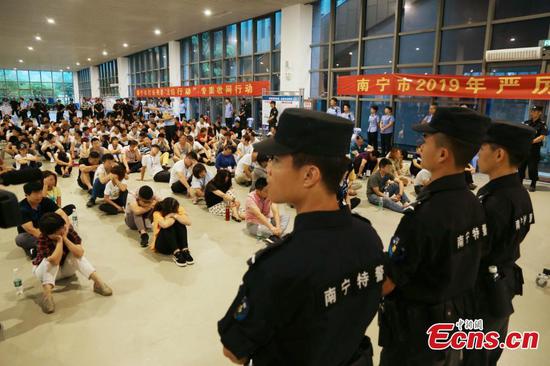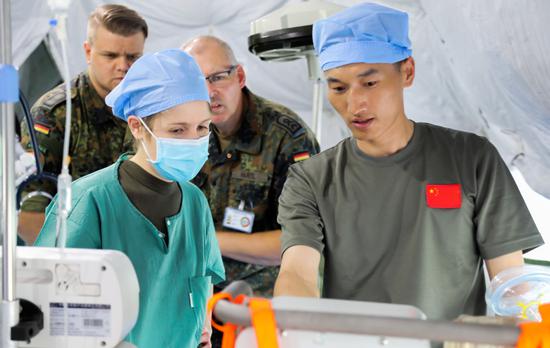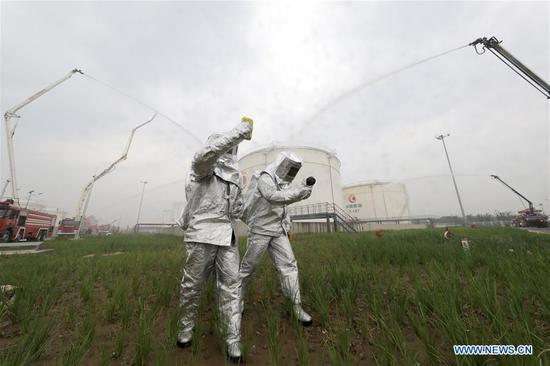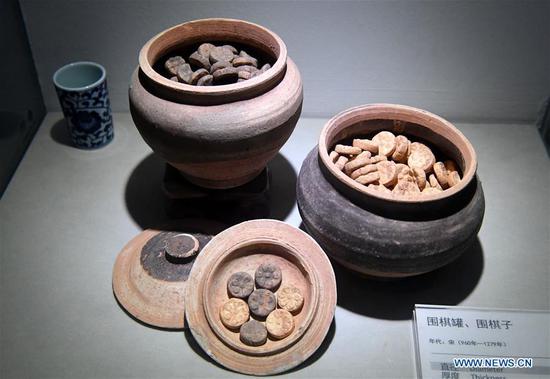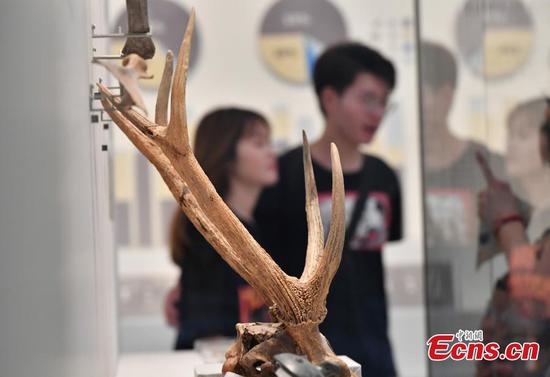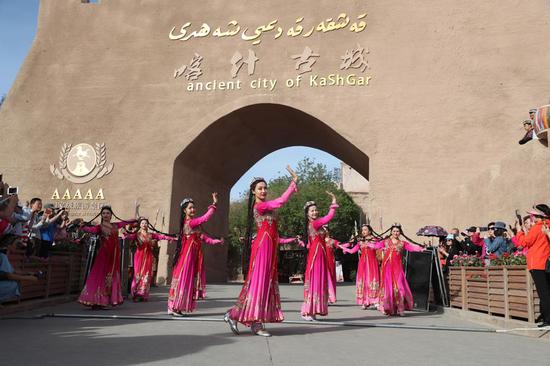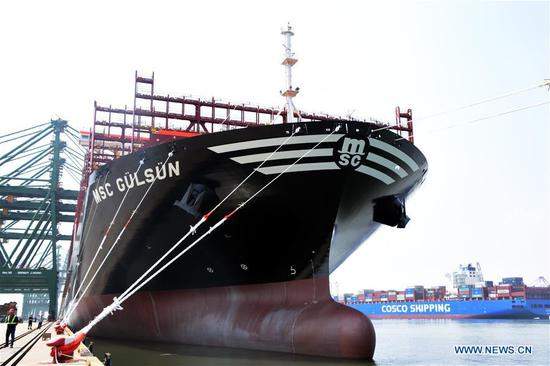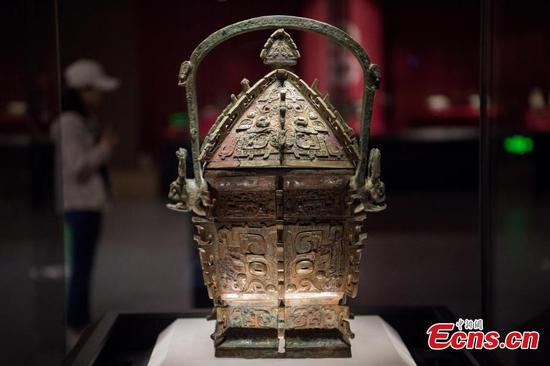A high-level international forum on U.S.-China economic relations concluded here Wednesday with calls for continued collaboration between the world's top two economies to proceed with trade negotiations and realize win-win progress.
U.S., CHINA NEED EACH OTHER
"The United States and China both need each other. Our economies are very intertwined," former U.S. Ambassador to China Max Baucus said on the sidelines of the forum themed "U.S.-China Trade and Economic Relations: What Now, What Next."
"We're joined at the hip in trade of goods, trade of services and investment. We're going to need each other more and more, as years go by," he added.
Since the establishment of U.S.-China diplomatic relations in 1979, economic ties between the two countries have been strengthened with booming two-way trade and investments.
History has proven that bilateral cooperation can create tremendous gains for both countries, said Jeff Moseley, CEO of the Texas Association of Business.
Texas has in particular benefited from the increasingly closer ties with China, its third largest trading partner, Moseley said. "We are enjoying strong investments from China in Texas, and we know that a lot of our companies are depending on the relationship."
Moseley said he hopes to attract even more Chinese investments to Texas in such areas as energy, agriculture, healthcare and technology.
Mark Kirk, former senator from the U.S. state of Illinois, said the state's top employers, such as healthcare company Abbott Laboratories, "really depend on doing well in the Chinese market."
"It's just in our interest to have good relations with China. When you look at these big Illinois employers, they all look forward to the future in China as the best way to improve the company," Kirk said. "You have to look at building the relationship from the ground up."
David Lampton, an Oksenberg-Rohlen fellow and research scholar at Stanford University's Asia Pacific Research Center, said that the two countries have "very compatible economies in many respects."
"China needs products in agriculture, energy and technology, and the United States needs many of the things that China manufactures. Investment from China creates jobs in the United States," he said. "So in principle, we have a very compatible economic status, and we should cooperate."
HOPE FOR SUCCESSFUL TRADE NEGOTIATIONS
Many participants at the two-day forum, including prominent politicians, scholars and business leaders, expressed hope that the trade negotiations between the two countries could eventually lead to a successful conclusion.
The Osaka summit held last month was important because leaders of the two countries "said to their people, both on the staff level and the people generally that 'We want to solve this. We want to work together,'" said Edwin Feulner, founder of U.S. think tank The Heritage Foundation.
"If we can get rid of some of the nagging, continuing problems, we will be able to solve it," said Feulner, who was fundamentally optimistic about the two countries working together.
To get rid of the possible obstacles to future cooperation, Lampton suggested that leaders of the two countries should "think strategically and long term."
"This is a time to move away from the confrontation," said Stephen Roach, a senior fellow at Yale University's Jackson Institute for Global Affairs.
Jimmy Flannigan, city council member of Austin, in the state of Texas, called for collaboration rather than a "battle for winners" in the negotiations.
"If we perceive these negotiations in this relationship as a battle for winners and losers, there will only be losers. That's the difference between competition and collaboration ... We want to see these trade deals come in a way that is mutually beneficial."
Some speakers at the forum also refuted the rhetoric that China is taking advantage of the United States.
The U.S. trade deficit is tied more to the country's own macroeconomic imbalances, said Roach. "We cannot address multilateral imbalances with over 100 countries by fixing the bilateral deficit with one country, China."
"Our bilateral relationship has had bumps in the road but has produced a classic win-win scenario," said Neil Bush, son of former U.S. President George H.W. Bush, on behalf of the Bush China Foundation.
BILATERAL COOPERATION BENEFITS WORLD
Attendees of the forum agreed that putting U.S.-China economic ties back on track will not only give a boost to bilateral cooperation, but also be a boon for the world at large.
If a good agreement is reached and lasts for a long time, China and the United States will establish a good precedent for the cooperative engagement of major economies in the future, Kirk said.
Participants agreed that the cooperation between the two countries has already brought positive spillover effects to the rest of the world in the past 40 years and it is expected to continue to influence the world in the future.
"During China's improvement and rise to the world's second largest economy, not only the United States and China have benefited, but the whole world has benefited," Roach said.
Feulner said China and the United States should see the negotiations as an opportunity to reach the "shared goal" of remodeling and upgrading the economic relationship.
"The world economy for the next 50 years is going to be impacted by the Chinese and American economies together," Feulner said. "We have to work together and I think we are on track to start doing that."
Strengthened economic ties of the world's top two economies will be especially significant amid the sluggish global trade and poor investment climate, attendees said.
"In the face of a slowing global economy, the two sides should find a new cooperative approach to make the 'economic cake' bigger and also help drive the development of other areas in the world," said Wei Jianguo, vice chairman of the China Center for International Economic Exchanges.
"Our high-level opening-up will spur China's further integration into the global economy, bringing benefits to its own people and also contributing to the development and peace of the globe," said China's former Vice Finance Minister Zhu Guangyao.














